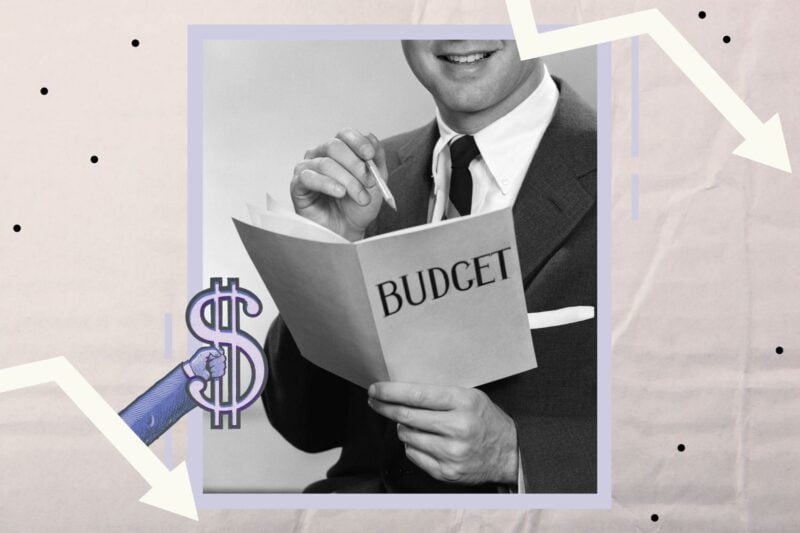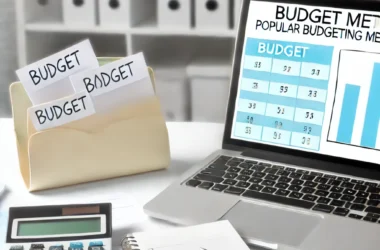During a recession, it becomes even more crucial to effectively manage our finances and stick to a budget. With economic uncertainty looming, budgeting becomes a key tool in securing our financial stability and working towards our financial goals. Here are comprehensive budgeting practices to help you navigate a recession:

1. Create a Detailed Budget during Recession
Developing a budget is the first step in taking control of your personal finance during a recession:
- Track your monthly income: List your paycheck and any other sources of income, check our article that help you optimize your paycheck routines.
- List all expenses: Include fixed costs (e.g., rent, utilities, groceries) and discretionary expenses (e.g., dining out, entertainment).
- Use tools: Employ budgeting software, spreadsheets, or a budget worksheet to organize your finances.
- Calculate net income: Subtract expenses from income to see your monthly surplus or deficit.
- Create a spending plan: Allocate your take-home pay to various categories.
- Use budgeting systems: Consider zero-based budgeting or the envelope system for better control.
- Write down everything: Keep a detailed record of all income and expenditures.
2. Prioritize Debt Repayment
Getting out of debt should be a top priority:
- Focus on high-interest debt: Prioritize paying off credit card balances and student loan debt.
- Allocate funds: Dedicate a portion of your budget to debt repayment.
- Consider consolidation: Look into options for consolidating debts to potentially lower interest rates.
- Track progress: Use a debt payoff tracker to stay motivated.
- Make extra payments: Use any surplus or extra cash to pay down debts faster.
3. Build an Emergency Fund
Having a financial safety net is crucial during uncertain times:
- Set a goal: Aim to save 3-6 months of living expenses.
- Automate savings: Set up automatic transfers to your savings account each month.
- Use a high-yield savings account: Maximize your emergency fund’s growth.
- Start small: Even setting aside a small amount each month can add up over time.
4. Cut Back on Unnecessary Expenses
Trimming your budget can free up funds:
- Review subscriptions: Cancel unused services.
- Reduce dining out: Cook at home more often to save on food expenses.
- Find free entertainment: Look for low-cost or free activities.
- Negotiate bills: Contact service providers to lower monthly payments.
- Be frugal: Look for ways to spend less on everyday items.
- Avoid overspending: Stick to your budget and avoid impulse purchases.
5. Increase Your Income
Look for ways to boost your earnings:
- Seek a side hustle: Consider freelance work or part-time jobs for extra money.
- Sell unused items: Declutter and sell items you no longer need.
- Ask for a raise: If appropriate, negotiate for a salary increase.
- Look for overtime: If available, take on extra hours at work.
6. Plan for the Future
While focusing on immediate needs, don’t neglect long-term goals:
- Continue retirement savings: Maintain contributions to your 401(k), IRA, or Roth IRA if possible.
- Invest wisely: Consider speaking with a financial planner about recession-resistant strategies.
- Set financial goals: Establish short-term and long-term objectives.
- Consider college savings: If applicable, plan for future education expenses.
- Review your financial plan: Regularly assess and adjust your long-term financial strategy.
7. Regularly Review and Adjust Your Budget
Your budget should be a living document:
- Monthly check-ins: Review your budget at least once a month.
- Track spending: Keep a close eye on where your money is going.
- Make adjustments: Be prepared to modify your budget as your financial situation changes.
- Balance your budget: Ensure your income matches or exceeds your expenditures.
- Check your progress: Regularly assess how well you’re meeting your budget goals.
8. Use Cash Flow Management Techniques
Improve your money management with these strategies:
- Zero-based budgeting: Allocate every dollar of income to a specific purpose.
- Envelope system: Use physical envelopes or digital categories to limit spending.
- 50/30/20 rule: Allocate 50% of income to needs, 30% to wants, and 20% to savings and debt repayment.
- Pay yourself first: Prioritize savings and investments before discretionary spending.
- Use the envelope budgeting system: Allocate cash to different spending categories.
9. Leverage Technology
Use digital tools to enhance your budgeting:
- Budgeting apps: Explore options like YNAB, EveryDollar, or Mint.
- Expense trackers: Use apps to log and categorize your spending.
- Budget calculators: Utilize online tools to help create and adjust your budget.
- Automated bill pay: Set up automatic payments to avoid late fees.
- Personal Capital: Use this tool for a comprehensive view of your finances.
10. Focus on Financial Health
Take a holistic approach to your finances:
- Monitor your credit score: Regularly check your credit report and work on improving your score.
- Live within your means: Avoid lifestyle inflation and stick to your budget.
- Plan for irregular income: If your income fluctuates, budget based on your lowest earning months.
- Build multiple income streams: Diversify your income sources for added financial security.
- Avoid living paycheck to paycheck: Build a buffer in your budget for unexpected expenses.
11. Educate Yourself
Continuously improve your financial literacy:
- Read personal finance books: Educate yourself on money management principles.
- Attend workshops: Look for free financial education seminars in your community.
- Use online resources: Take advantage of reputable financial websites and tools.
- Learn budgeting tips: Seek advice from financial experts on how to budget effectively.
By implementing these budgeting practices, you can better manage your finances during a recession, work towards becoming debt-free, and build a more secure financial future. Remember, the key to successful budgeting is consistency and adaptability. Stay committed to your financial plan, but be ready to adjust as economic conditions change. With proper budgeting and money management, you can weather the financial storm of a recession and come out stronger on the other side.








